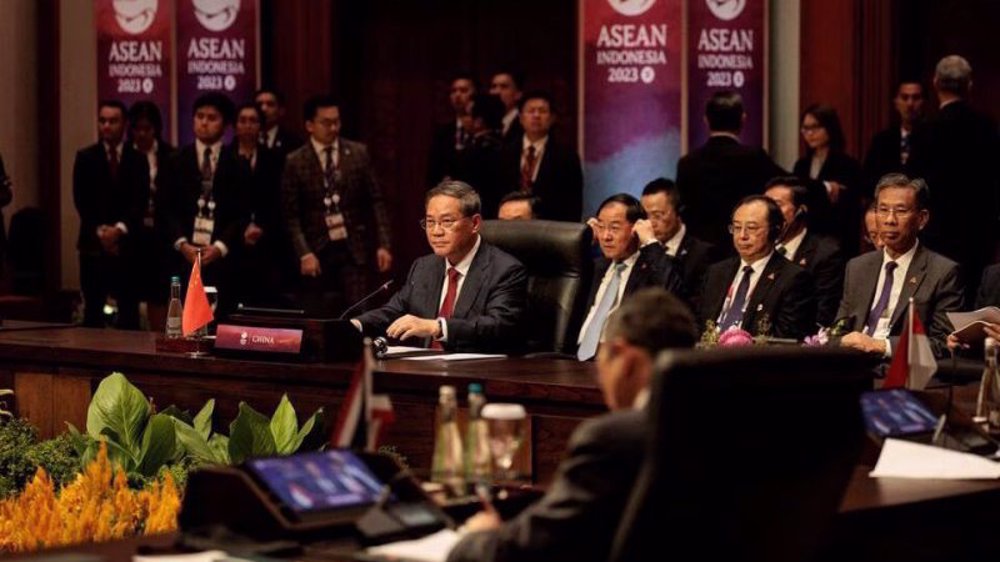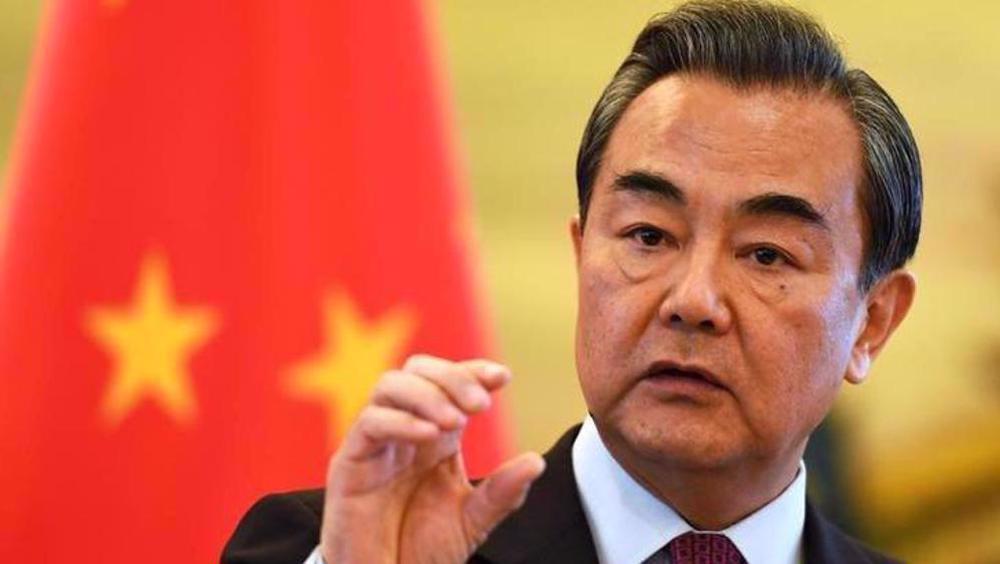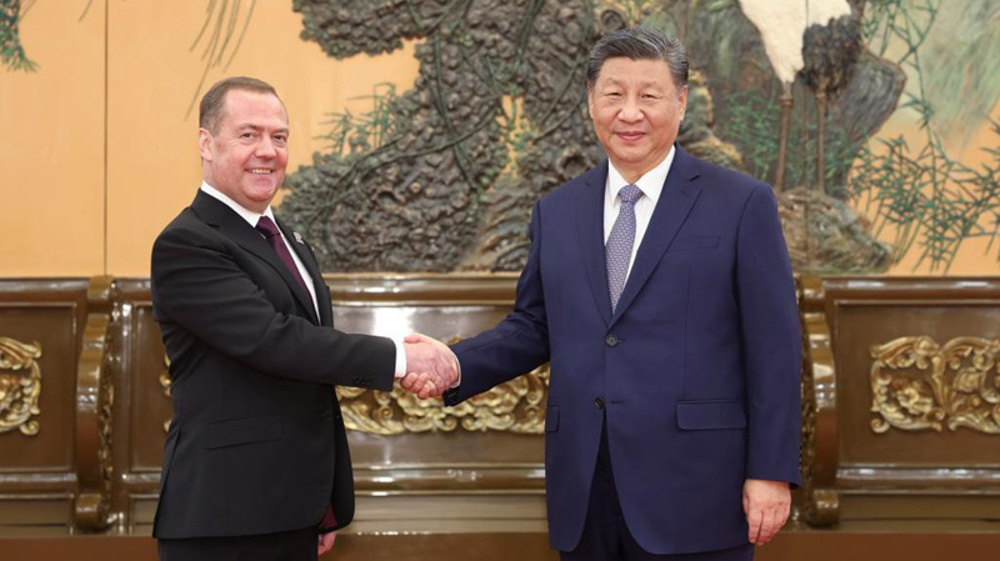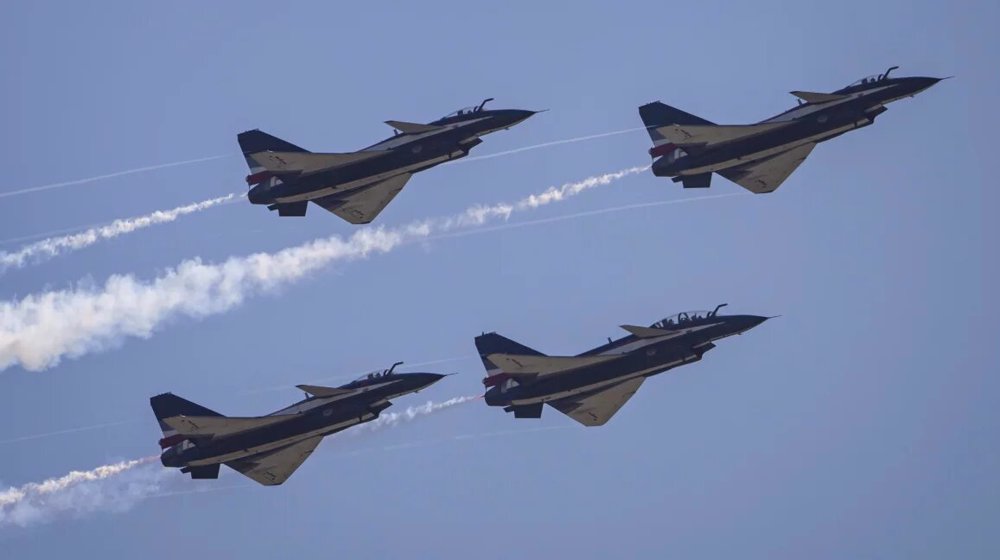China warns against ‘new Cold War’ at ASEAN summit
Chinese Premier Li Qiang has warned against the “new Cold War” at the annual summit of the Association of Southeast Asian Nations (ASEAN) when dealing with conflicts between countries, as leaders of the economic grouping gathered in Indonesia.
On Wednesday, Li sounded the alarm at the 43rd ASEAN summit held in Jakarta amid sharpening geopolitical rivalries across the Indo-Pacific region, stressing that countries needed to “appropriately handle differences and disputes.”
“At present, it is very important to oppose taking sides, bloc confrontation and a new Cold War,” Li told the annual meeting.
China has time and again expressed concern about US-backed blocs forming on its doorstep, while facing disputes with other powers in the region over the South China Sea and other issues.
“Disagreements and disputes may arise between countries due to misperceptions, diverging interests or external interferences,” Li further said at the beginning of the ASEAN-plus-three meeting with Japan and South Korea.
Relations between China and the United States have deteriorated in recent years over Washington’s constant meddling in Taiwan and more recetnly over the conflict in Ukraine.
Beijing has repeatedly accused Washington of various military provocations in the South China Sea, Taiwan Strait, and elsewhere across the region.
The 10-member political and economic union, which has already warned of the danger of getting dragged into disputes among major powers, is also holding further talks with Li, US Vice President Kamala Harris and leaders of partner countries, including Japan, South Korea, Australia and India.
Neither US President Joe Biden nor his Chinese counterpart, Xi Jinping, is attending the summit.
ASEAN includes Brunei, Cambodia, Indonesia, Laos, Malaysia, Myanmar, the Philippines, Singapore, Thailand, and Vietnam.
Harris, for her part, claimed that Washington “has an enduring commitment to Southeast Asia and more broadly to the Indo-Pacific.”
She also said the US would continue to pressure the ruling junta in Myanmar to put an end to “horrific violence” that has erupted since a military coup in 2021.
In a statement, ASEAN chair Indonesia noted that the bloc needed to “strengthen stability in the maritime sphere in our region ... and explore new initiatives towards these ends”, stressing that regional leaders expressed “grave concern” over a lack of substantial progress on ASEAN’s five-point peace plan for Myanmar.
An 18-member East Asia Summit is scheduled on Thursday to be attended by Russian Foreign Minister Sergei Lavrov, where broader geopolitical issues are expected to top the agenda.
D-8’s role in Iran’s economy after Cairo summit
China slams US as ‘war-addicted’ threat to global security
China ‘firmly opposes’ US military aid to Taiwan
VIDEO | Press TV's News Headlines
President Yoon Suk Yeol to be removed from office
At least 19 Gazans killed by Israeli airstrikes since dawn: Medics
Leader: Iran neither has nor needs proxy forces
US fighter aircraft shot down ‘in friendly fire’ amid aggression on Yemen












 This makes it easy to access the Press TV website
This makes it easy to access the Press TV website